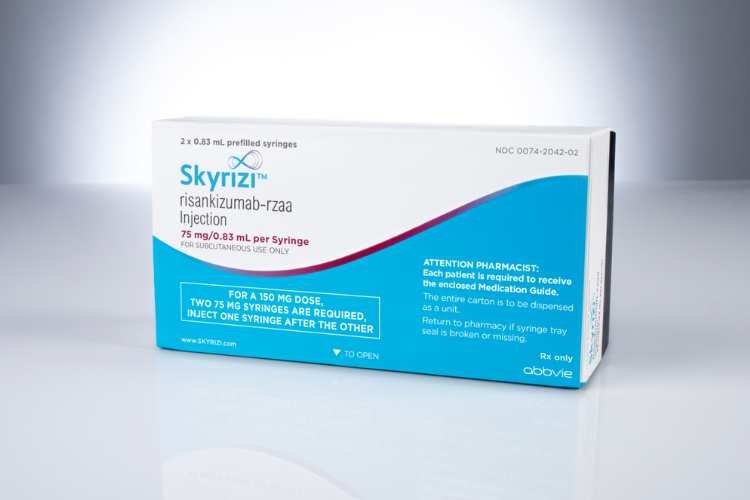AbbVie’s revolutionary anti-inflammatory medication, Skyrizi, has been consistently outperforming its competitors in recent clinical trials, making waves in the field of inflammatory diseases. In its latest triumph, Skyrizi has gone head-to-head with Johnson & Johnson’s Stelara in a successful study focusing on Crohn’s disease treatment.
The results are nothing short of impressive: Skyrizi not only matched Stelara in inducing clinical remission among patients with active, moderate to severe Crohn’s disease who had not responded to traditional anti-TNF agents but also displayed a significant treatment advantage. The Crohn’s Disease Activity Index (CDAI) revealed remission rates of 59% for Skyrizi compared to 40% for Stelara at week 24, according to AbbVie. Additionally, Skyrizi outperformed Stelara in endoscopic remission, with 32% of Skyrizi patients achieving remission at week 48, compared to only 16% in the Stelara group.
What’s more, Skyrizi demonstrated a statistically significant edge over Stelara across all secondary endpoints, solidifying its superiority in treating Crohn’s disease. These groundbreaking findings reinforce Skyrizi’s status as a highly effective treatment option for individuals living with this challenging condition.
“We are encouraged by these results, which demonstrate the impact SKYSkyrizi RIZI can have in helping patients achieve both clinical and endoscopic remission. These head-to-head data reinforce Skyrizi is an effective treatment option for patients living with Crohn’s disease.”
– Roopal Thakkar, senior vice president, development and regulatory affairs and chief medical officer, AbbVie
Just over a year since its approval for Crohn’s disease by the FDA in June 2022, Skyrizi has managed to capture approximately 25% of the market share for new and switching patients in the U.S., nearly on par with Stelara. The second quarter of 2023 saw Skyrizi’s sales soar by an impressive 50% year over year, reaching nearly $1.9 billion.
Skyrizi’s remarkable success isn’t confined to Crohn’s disease alone. In the realm of ulcerative colitis, another subtype of inflammatory bowel disease, the drug has produced consistently positive results across primary and secondary endpoints in two phase 3 trials, both as an induction and maintenance therapy. Just recently, AbbVie submitted applications to the FDA and the European Medicines Agency for Skyrizi’s use in ulcerative colitis, signaling its intention to further expand the drug’s reach.
This victory in the Crohn’s disease arena follows closely on the heels of Skyrizi’s triumph over Amgen’s Otezla in a head-to-head plaque psoriasis trial. By week 16, an astounding 55.9% of patients with moderate psoriasis who received Skyrizi achieved clear or nearly clear skin, in stark contrast to the mere 5.1% of patients on Otezla.
The exceptional performance of Skyrizi throughout this year prompted AbbVie to revise its 2023 sales projection for the drug upward by $200 million, now standing at an impressive $7.6 billion.
AbbVie is making significant efforts to expand the reach of both Skyrizi and the JAK inhibitor Rinvoq in the realm of inflammatory diseases. This strategic move aims to offset the revenue decline resulting from the 25% drop in sales of the anti-TNF drug Humira during the second quarter, attributable to ongoing biosimilar competition in the US.
On the other side of the competitive landscape, Johnson & Johnson is preparing for the impending patent expiration of Stelara. While the US patent protection for the IL-12/23 antibody begins to erode this year, J&J has strategically reached settlements with key players such as Amgen, Teva and Alvotech, Fresenius Kabi, and Formycon. These settlements will delay the launch of Stelara biosimilars until 2025.
In the second quarter, Stelara’s global sales managed to rise by 8% to reach $2.8 billion. The battle for supremacy in the field of inflammatory disease treatment is intensifying, and Skyrizi’s relentless success is undoubtedly reshaping the landscape.





























